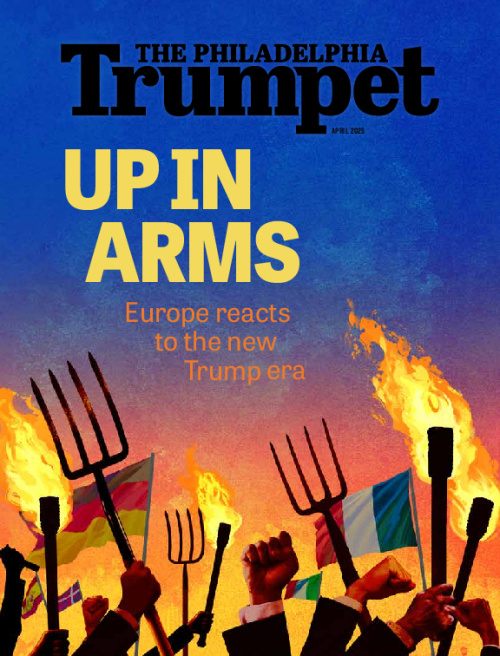For the Joy of Travel

For the Joy of Travel
Travel is education! Not long ago, it was a critical component of the educational system.
For hundreds of years, “the grand tour” was more than essential to the education of young Englishmen; it was a rite of passage. “Grand tourists” sometimes took several years to travel through France, Germany, Italy, Eastern Europe, the Ottoman Empire and beyond. A student learned politics, economics and culture by experiencing them firsthand. He could study French in Paris, archaeology in Naples, architecture in Prague. Society considered the grand tour the culmination of the education of a boy into a man. Even those with lesser means craved travel, joining the Royal Navy or the British Army for the thrill of travel and adventure. “Our island is too small,” Shakespeare said. “Our kingdom is the world.”
Educational travel can provide you unparalleled experiences. Herbert W. Armstrong, founder of the Plain Truth and of Ambassador College, wrote in his autobiography, “Education comes from study—from books—from lectures—from contacts—from travel—from thinking about what you see and hear and read—and from experience.”
Jesus Christ sent His disciples on long journeys, telling them, “[Y]e shall be witnesses unto me both in Jerusalem, and in all Judaea, and in Samaria, and unto the uttermost part of the earth” (Acts 1:8). Christ said the Apostle Paul would “bear my name before the Gentiles, and kings, and the children of Israel” (Acts 9:15), a commission took him to Turkey, Greece, Italy and beyond. The experiences these men gathered during their travels played important roles in how they fulfilled their commissions.
Today, Herbert W. Armstrong College (sponsored by the Philadelphia Church of God, publisher of the Trumpet) encourages students to take advantage of travel opportunities, including transfers to its sister campus in Edstone, England, trips to Western Europe, and archaeological excavations in Jerusalem.
While studying at Armstrong College in Edstone, I participated in a student trip to the Netherlands, where we walked amid the quiet canals and charming 17th-century buildings of Amsterdam. I was at the time reading Anne Frank’s diary. One stop on our itinerary was her family’s hideaway, now a museum. Reading Anne’s thoughts on paper was one thing. Walking through the cramped conditions Anne lived in—feeling the lack of privacy that came with it—made the frustration, the angst, the desperation she vented into her diary come alive. In a small way, I could feel Anne’s emotions myself.
Travel can forge personal connections to history and current events. It can teach you responsibility as you interact with unfamiliar places and languages. Sharing the experience with friends can create warm memories to last a lifetime. Travel also opens opportunities to form new friendships with locals. Completing a successful trip can also give you a certain sense of achievement. Rick Steves writes in his guidebooks that travel is “one of the last great sources of legal adventure.”
How can you prepare for an educational travel experience? Here are some tips based on material Stephen Flurry gave in a March 11, 2020, Trumpet Daily:
Set goals for places and sites you would like to visit. Advanced planning gives time to save funds, block out time, and develop an itinerary.
Take your travel desires to God in prayer. 1 Peter 5:7 tells us to cast “all your care upon him [God]; for he careth for you.” Christ said, “The things which are impossible with men are possible with God” (Luke 18:27). Don’t assume traveling is beyond your means.
Save money. Don’t go into debt to travel—set aside the money in advance. Establish a travel savings account, and put money into it each month.
Plan what you hope to see and find. Using travel guides and museum guides before you travel can help make a trip more meaningful. One of my favorite sites in Europe is Paris’s Louvre Museum. The congestion around famous artworks can scare off potential visitors. But the Louvre is also a treasure trove of important biblical artifacts that many people miss simply because of ignorance. Prior research helps make trips more informed and special.
Learn the historical context beforehand. Visiting the Anne Frank House without reading her diary beforehand is like visiting a stranger’s attic. Knowing about Anne’s life brought personality into her hideaway. Accounts from other important figures can help inspire other itineraries.
Don’t settle on being a pleasure-seeking tourist. The root for the English word travel comes from the French travailler, which means to work. There is a time to spend days relaxing at the beach, but the most rewarding experiences often come from investing effort in preparation and appreciation for serious subjects. Be a travailler.
God wants you to become truly educated, and travel is an important component of true education. God can open up opportunities for you that you can’t even imagine. We certainly have our part to do. Traveling to new places doesn’t have to seem intimidating or out of reach. Take advantage of it when you can, and work to make opportunities. Who knows? It may change your life.
